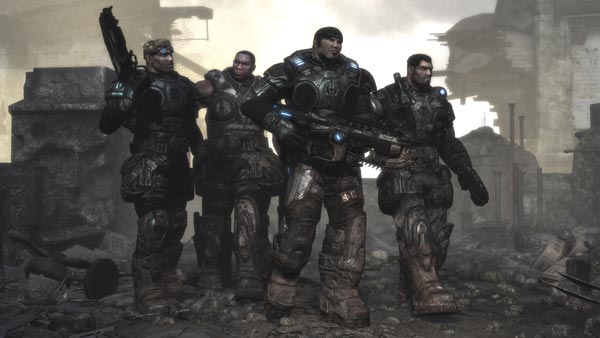Gears of War: Why a derivative sci-fi gorefest is the best video game of the year
slate.com

In addition to being a great marketer, Bleszinski is also terrific at explaining how game design works. "In the grand scheme of videogame real estate the 'A' button is Park Place," he wrote in a blog post this past September. "The D-pad, Y, and back are Compton and Watts. When we put together our control scheme for our games we say to the player that the buttons that are prime real estate are the things that the player will be doing most often while playing. Allow me to ask this question then—how did [using the 'A' button for jumping] from the days of Sonic and Mario creep into the shooter genre?"...
In a 2000 Game Developers Conference lecture, Bleszinski called this element of game design "pacing." "Constant scares dull the senses," he said. "The scariest horror movies are the ones that lull the viewers into a false sense of security and then spring something scary upon them, and a great level is no different." Good pacing, I would argue, is what gamers really want, rather than plot. Pacing can feel like plot, because we're accustomed to thinking of games as narratives, even when they're not. Gears has only the thinnest of stories drizzled over its gorgeous visuals and addictive mechanics. The pace is what makes it great.
In another blog post at 1up.com, Bleszinski acknowledges the derivative nature of much of Gears of War. And that's what people like about it, he suggests. He points to the innovative, critically acclaimed, and commercially disappointing game Psychonauts, whose designer recently complained that game publishers aren't interested in originality. (He might have added that many gamers aren't, either.) "I don't think it's always a good thing to be 110% unique," Bleszinski wrote. "Sometimes, the more unique your game and universe design the more difficult it can be for millions of gamers … to latch onto your game mechanics and characters." He added, "The most original and unique films are often not commercial box office hits. They're the groundbreaking ones that other more mainstream flicks draw from in years to come as the larger audience evolves with them." |





